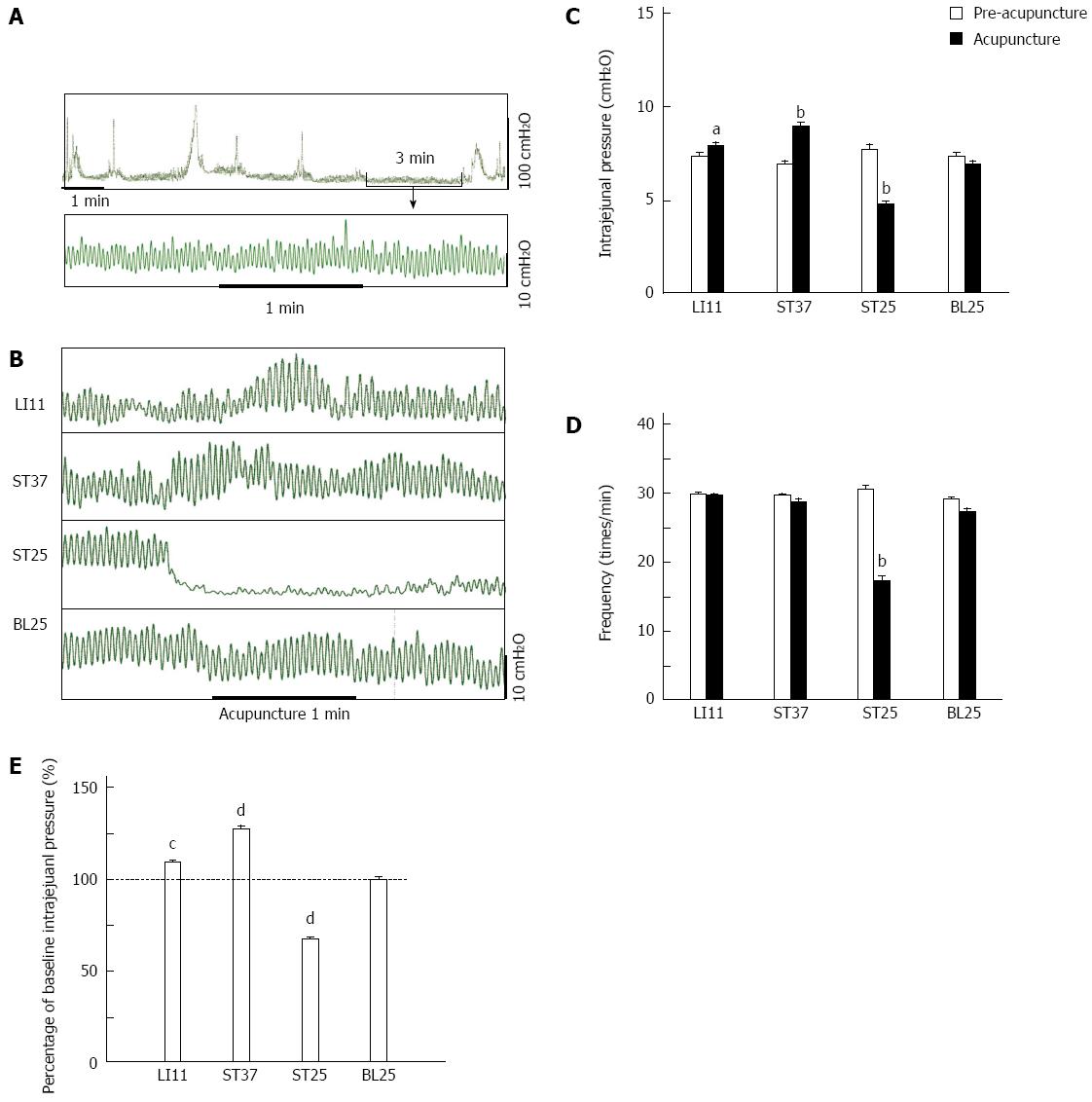Copyright
©2014 Baishideng Publishing Group Inc.
World J Gastroenterol. Dec 28, 2014; 20(48): 18271-18283
Published online Dec 28, 2014. doi: 10.3748/wjg.v20.i48.18271
Published online Dec 28, 2014. doi: 10.3748/wjg.v20.i48.18271
Figure 1 Jejunal motility regulated by manual acupuncture at LI11, ST37, ST25, and BL25 in normal rats.
A: A representative trace of jejunal motility in normal rat; B: Representative traces of jejunal motility regulated by acupuncture at LI11, ST37, ST25, and BL25; C: Acupuncture at LI11, ST37, and ST25 affected intrajejunal pressure significantly in normal rats (aP < 0.05, bP < 0.01 vs pre-acupuncture, paired t-test, n = 17); D: Only acupuncture at ST25 decreased the frequency of jejunal motility (bP < 0.01 vs pre-acupuncture, paired t-test, n = 17); E: The percent change in intrajejunal pressure caused by acupuncture at LI11, ST37, ST25, and BL25 (cP < 0.05, dP < 0.01 vs baseline, paired t-test, n = 17). Intrajejunal pressure was normalized by baseline, which is denoted by the dashed line.
- Citation: Qin QG, Gao XY, Liu K, Yu XC, Li L, Wang HP, Zhu B. Acupuncture at heterotopic acupoints enhances jejunal motility in constipated and diarrheic rats. World J Gastroenterol 2014; 20(48): 18271-18283
- URL: https://www.wjgnet.com/1007-9327/full/v20/i48/18271.htm
- DOI: https://dx.doi.org/10.3748/wjg.v20.i48.18271









